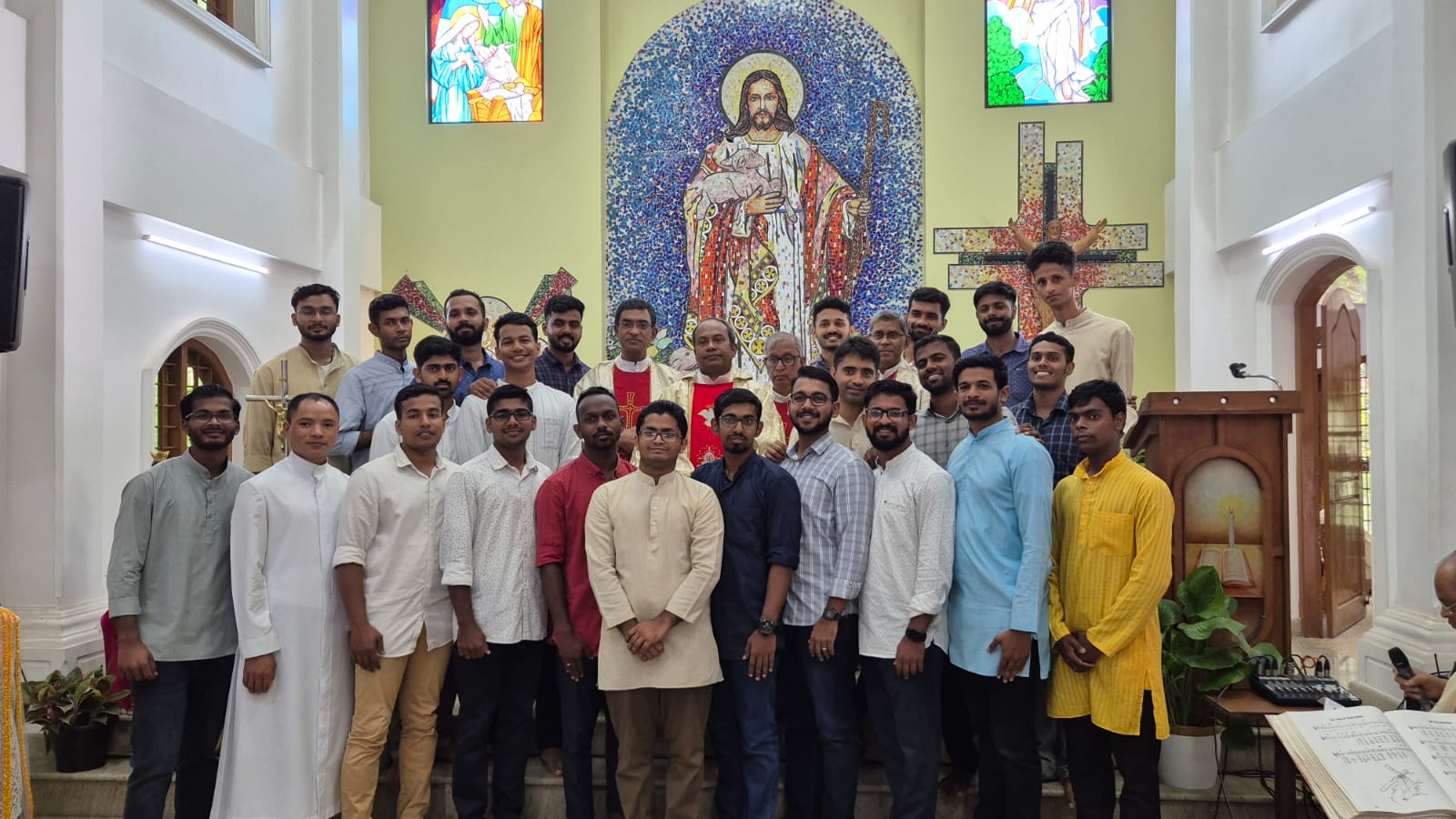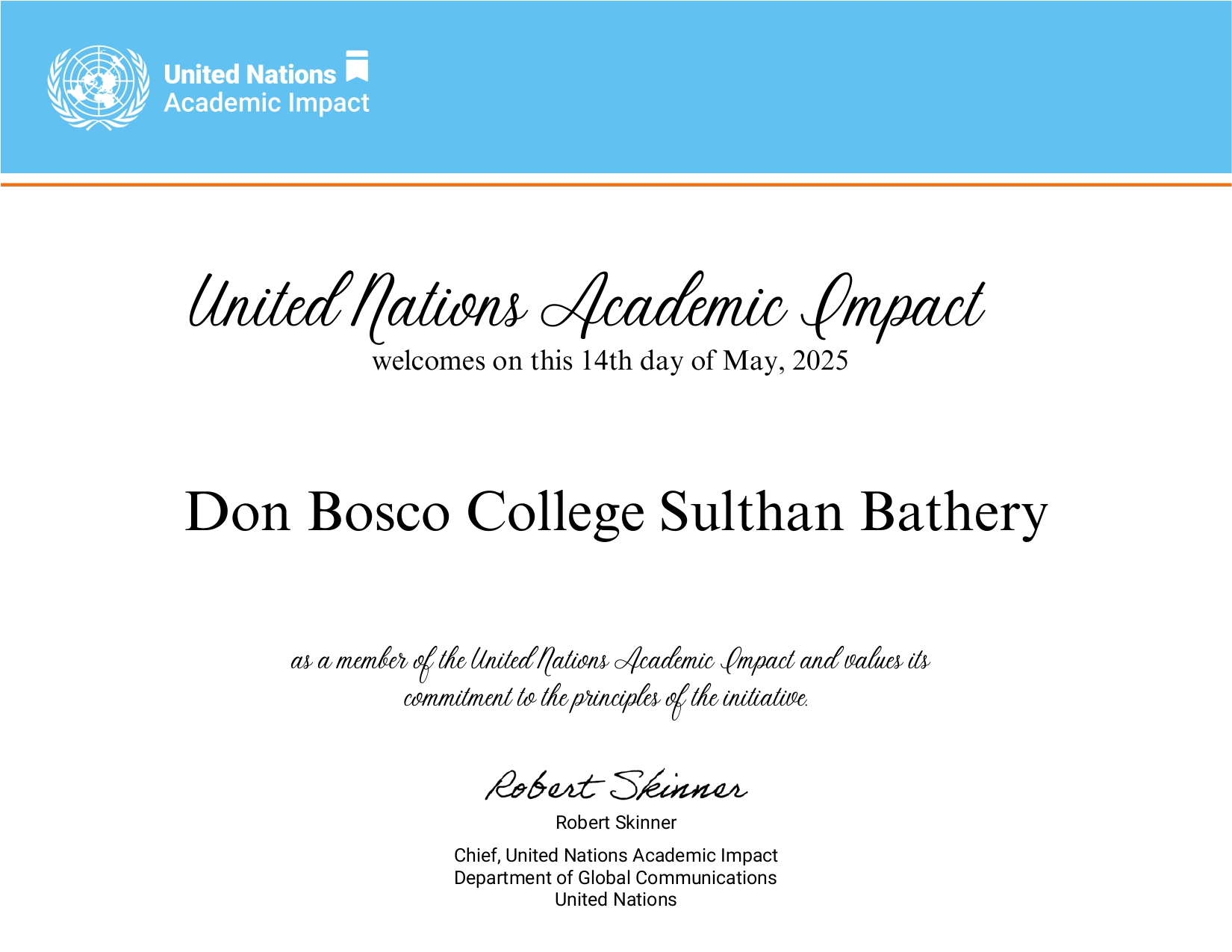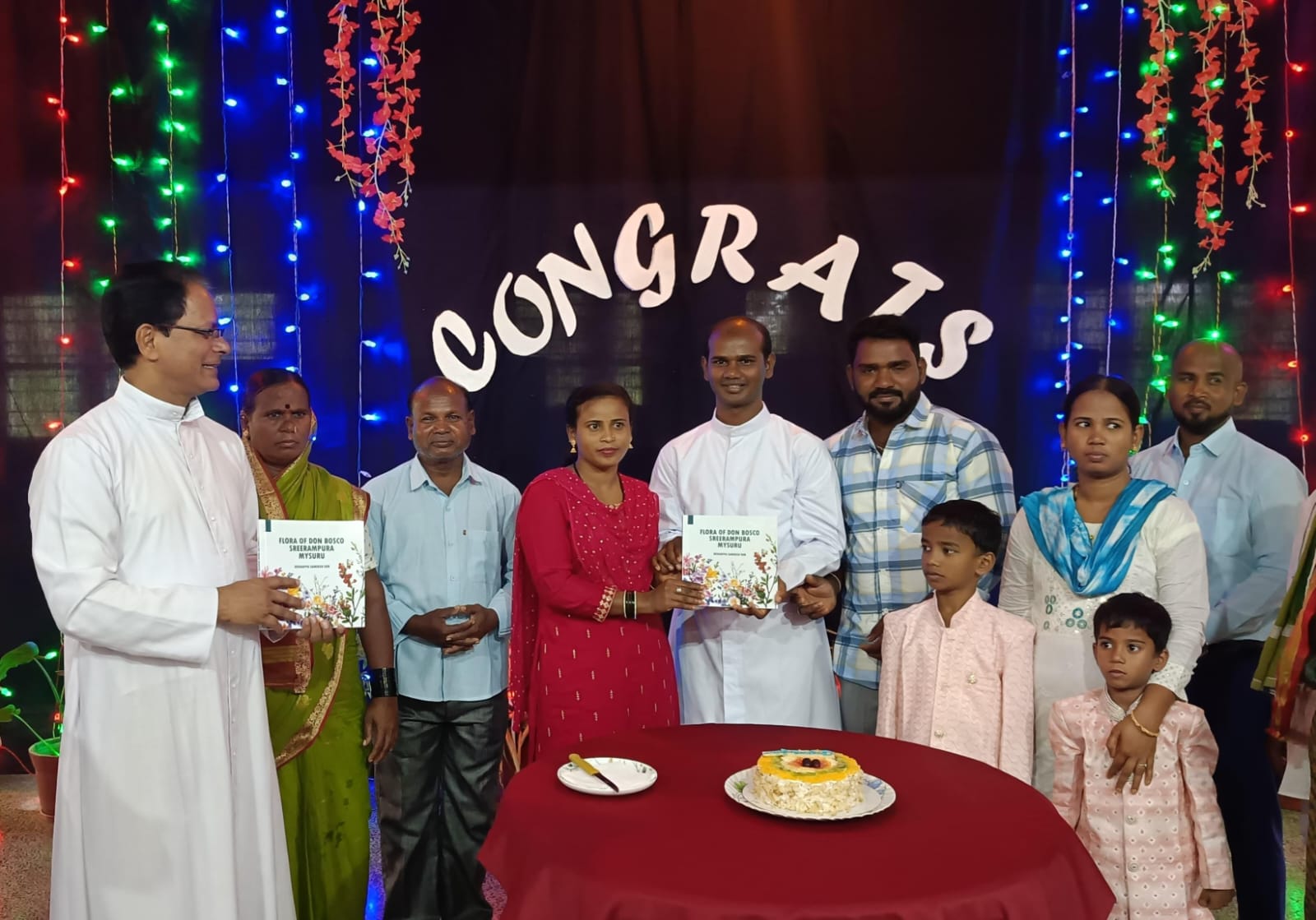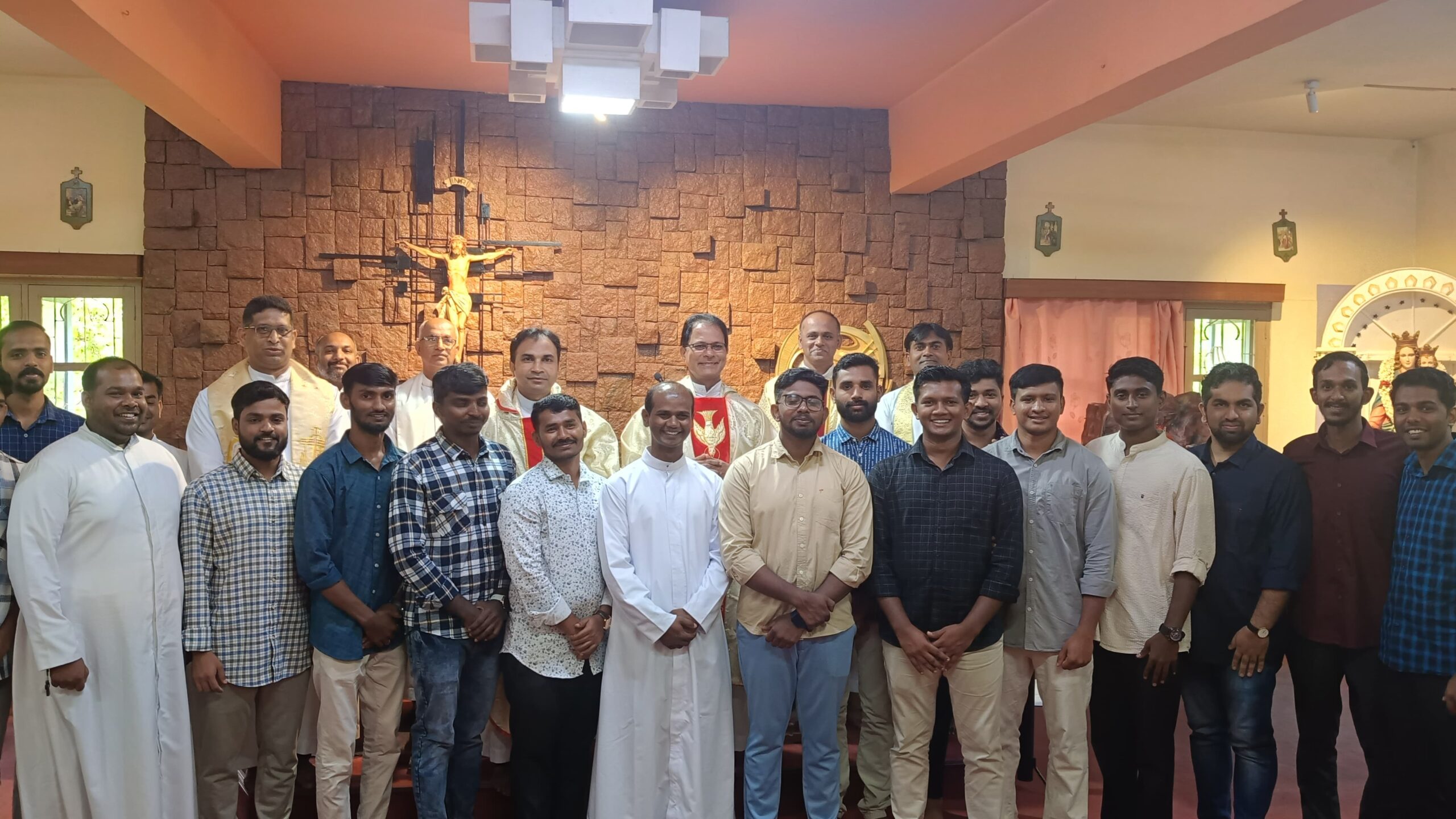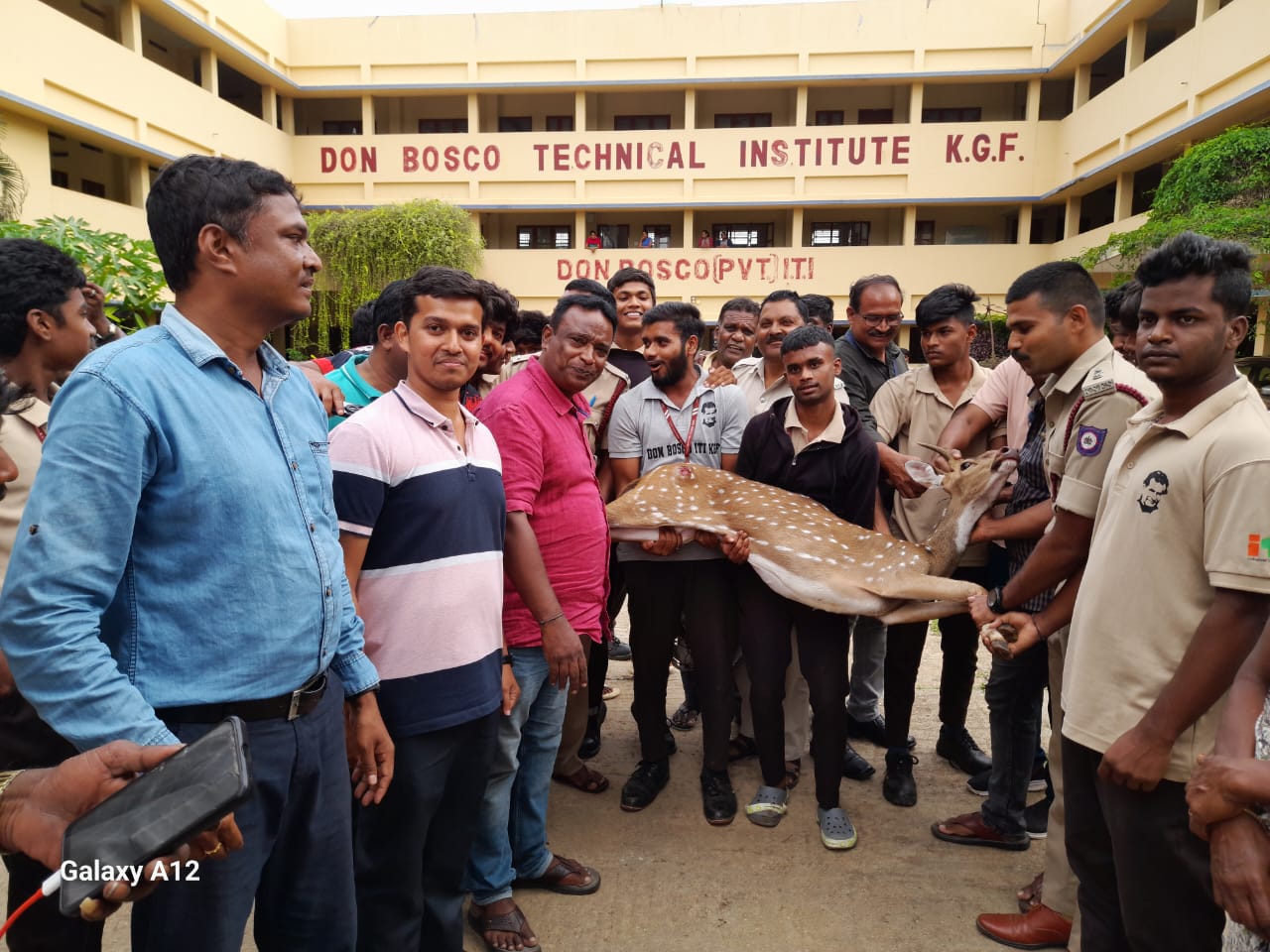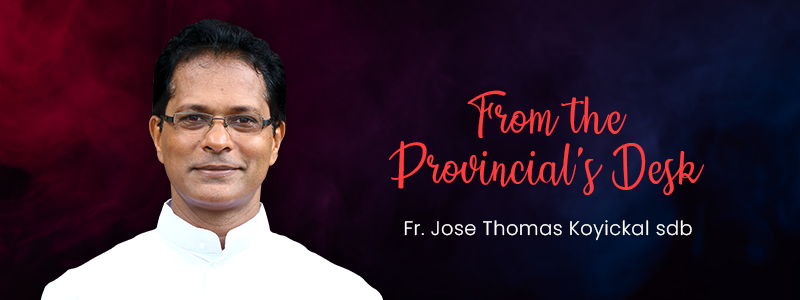
INDEPENDENCE DAY AND ASSUMPTION OF OUR BL. MOTHER
The month of August recalls to Indian Salesians two important events that occur on 15th August – the Independence Day of our motherland and the Assumption of Our Blessed Mother. The former is a political event, while the latter is a spiritual one. India’s Independence Day is a national event, whereas the Assumption of Mary is a universal celebration. Both events speak of one and the same reality – freedom. While the freedom we enjoy as citizens is from foreign domination and external constraints, Assumption points to an internal freedom – from death, as the result of a life lived free from sin and evil.
Independence Day commemorates the spirit of our great nation – that of courage and resilience. It reflects the profound journey our country has traversed, a legacy forged through countless sacrifices and relentless struggles. The heroic sacrifices of the freedom fighters are worth remembering. Their ultimate aim was to see India stand on its own and attain its pristine glory. Their noble vision and selfless efforts, supported by the masses, made India’s independence a dream come true. As we celebrate the 78th Independence Day our aspirations and expectations remain high. We hope for a stronger and more prosperous India, where the fruits of independence can be enjoyed by everyone.
Freedom, as we cherish it today, is a great challenge too. It calls for commitment to remain steadfast to the principles that define our freedom and work together to build a brighter and more equitable future for all. It entails our efforts to resist all that restrain us from becoming what we profess as a nation: a “Sovereign Socialist Secular Democratic Republic”, assuring to all citizens “JUSTICE, social, economic and political; LIBERTY of thought, expression, belief, faith and worship; EQUALITY of status and of opportunity; and to promote among them all FRATERNITY assuring the dignity of the individual and the unity and integrity of the Nation”.
There has been no other time in Indian history as crucial as ours, as recent events reveal, necessitating a greater emphasis on the fundamental principles outlined in the preamble to the Indian Constitution quoted above. Though we look ahead confidently with optimism, the signs of our times are very much disturbing. On the political front we experience much turmoil and upheavals. The gap between the rich and the poor is sadly widening ever more, in spite of several welfare schemes. The economic scenario is much alarming and afflicting the poor (“aam aadmi”). The underprivileged sections of the people are the target of the powerful. The people of India need all the more to be aware, study, propose and fight for safeguarding the “independence” bought through the sweat and blood of our freedom fighters. The Constitution of India can be a good book for reading and reflection for each of us during this month for a greater awareness of what constitutes the socio-political fabric of India.
The Catholic Vision of Freedom
A Christian vision of freedom is an interior freedom, one that is unbound by habitual sin, instead set free by the grace of Jesus Christ. We may be “free” to choose whatever we want. But to use that freedom to choose what is evil is actually an abuse of freedom. In doing so we are no longer free, but slaves of sin. True freedom does not mean doing whatever we want or whatever others might expect us to do; on the contrary, it sometimes entails acting against our desires or the expectations of others. The Catechism of the Catholic Church explains: “The exercise of freedom does not imply a right to say or do everything. It is false to maintain that man, the subject of this freedom, is an individual who is fully self-sufficient and whose finality is the satisfaction of his own interests in the enjoyment of earthly goods… By deviating from the moral law man violates his own freedom, becomes imprisoned within himself, disrupts neighbourly fellowship, and rebels against divine truth” (CCC 1740). Perhaps the greatest explanation of freedom in our Catholic tradition comes from St Thomas Aquinas. In his Commentary on the Sentences he notes that freedom is inherently ordered toward the good, and so being indecisive in the face of good and evil is not in fact freedom. Rather, freedom “is by its nature ordered to the good, and tends to evil only by defect.” (II, 25, Q. 1, A. 1, Ad. 2). Thus, to the extent that our freedom allows us to even think about choosing evil, our freedom is defective. For Aquinas, and for us as Catholics, the greatest freedom lies in the inability to sin – not because we are perfect or have no choice in the matter, but because choosing the good is so ingrained in us that choosing evil isn’t even on our radar. The great Dominican moral theologian Servais Pinckaers calls this “freedom for excellence.” This “habit” of choosing excellence can be called virtue.
The architects of our great country, who led the struggle for freedom through non-violent methods under the leadership of Mahatma Gandhi, and the framers of our Indian Constitution, share the same belief. We owe it to them, to God and to ourselves to use our freedom wisely and to strive for excellence. Living a life guided by proper choices, conviction and commitment is the only way to attain true freedom.
Mary Assumed into Heaven, the Embodiment of True Freedom
The solemn feast of the Assumption of Mary into heaven, body and soul, after her earthly sojourn, serves as a powerful symbol of freedom – a freedom that transcends both earthly and spiritual realms. It is a celebration of her unique role in salvation history, a testament toher purity, unwavering faith and total surrender to God’s will. Raniero Cantalamessa, theologian and preacher to the Papal Household since 1980, stated the following in his book Mary Mirror of the Church: “Mary’s fiat was a free act; it was the first really true free act since the beginning of the world, because true freedom does not consist in doing or not doing what is good but in freely doing what is good; freedom to freely obey and not freedom to obey or not obey God.” Mary’s freedom implied more than saying “yes” or “no”. It was a freedom to embrace freely all that her initial fiat would bring into play. Her freedom was both human and divine; human by nature, divine by grace.
There are three great fiats in history. The first is when God said “Fiat lux” (let there be light – Gen1,3). This fiat brought the world into existence. The next was Mary’s fiat: Fiat mihi secundum verbum tuum (“let it be done unto me according to Your word” – Lk 1,38). The third fiat is that of Jesus in the paschal mystery, His saying yes to the will of the Father: non sicut ego volo, sed sicut tu (not as I will, but as Thou wilt – Mt 26,39). But there is a fourth fiat, one that is contained in the Our Father, one that we say every day: Fiat voluntas Tua (“Thy will be done”). In reciting this prayer we are repeating Mary’s fiat, welcoming God’s will into our daily lives. Our fiat adopts the fiat of Mary: “Yes” to creation, “yes” to the Incarnation, and “yes” to living in accord with God’s will. Mary’s acceptance of God’s will was truly free in that she accepted everything that was to emerge from that assent. Since it was unconditional, it was free in the highest sense of the word. Her freedom was momentous in its significance and offers us a model of freedom that each of us should seek to imitate in our daily lives.
As we reflect on the mystery of the Assumption we are invited to see Mary not just as the Mother of Jesus, but as a beacon of freedom – a freedom that is both liberating and transformative. Mary’s life exemplifies a freedom born of faith. In a world that often grapples with uncertainty and fear Mary’s faith demonstrates that true freedom comes from embracing God’s plan with an open heart. She teaches us that freedom is not merely the absence of constraints but the presence of divine purpose and direction. When we are “in dependence” to God there is true independence: “For it is when the Son sets us free, we are truly free” (cf. Jn 8,36)
The feast of the Assumption of our Blessed Mother reminds us that freedom is not only external, but more importantly, internal. True freedom involves independence from sin, which can lead us to ultimate freedom – even from death. Mary’s life was a reflection of her commitment to God’s will, which purified her soul and sanctified her being. Her body, honoured in the Assumption, is a testament to the sanctity that purity brings – a purity not only of the body but of the spirit. This freedom from sin and spiritual bondage reminds us of the call to seek holiness in our own lives.
-
LENT: A JOUR...
29 March 2025 -
“ANCHORED IN...
14 February 2025 -
JUBILEE 2025...
08 February 2025 -
THE BIRTH OF...
08 January 2025 -
MONTH OF NOV...
13 November 2024 -
REDISCOVERIN...
13 October 2024 -
SYNODALITY A...
13 September 2024 -
INDEPENDENCE...
04 August 2024 -
THE SACRED H...
04 August 2024 -
THE SPIRITUA...
04 August 2024




